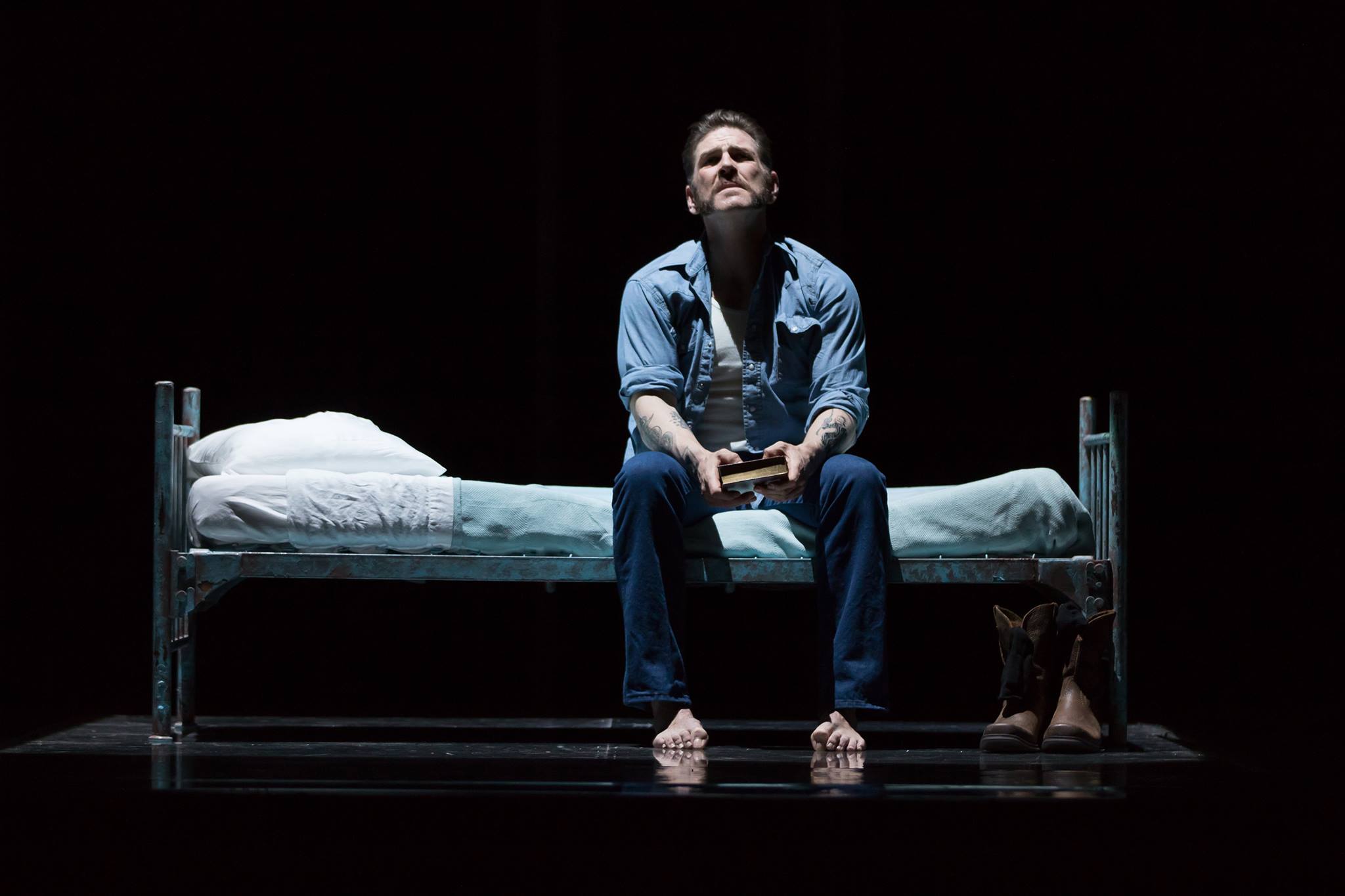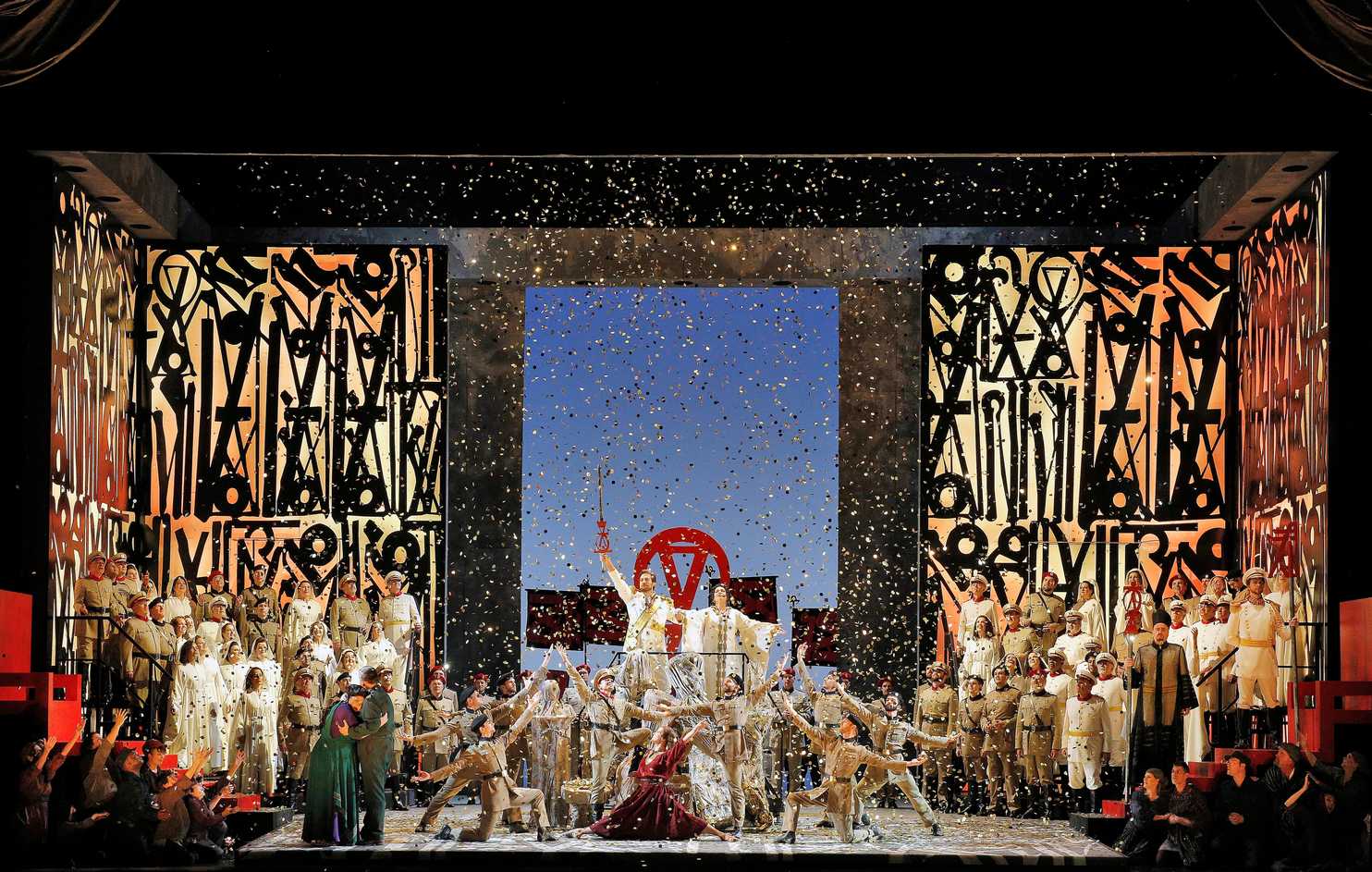Gaveaux's Léonore

Opera Lafayette performs a precursor to Beethoven's Fidelio composed by a guy named Pierre Gaveaux.
And it's pretty damn good.
The cast of Opera Lafayette's Léonore, ou L’amour conjugal: (L to R) Keven Geddes, Pascale Beaudin, Jean-Michel Richer, Kimy Mc Laren, Alexandre Sylvestre, Tomislav Lavoie, and Dominique Côté.
There's a often good reason certain operas remain obscure or unknown to contemporary audiences. Last spring a San Francisco opera company mounted Carlo Pallavicino's The Amazons in the Fortunate Isles for the first time since its 1679 premiere. Based on reviews it probably won't be staged for another 337 years. Pallavicino wrote at least 20 operas, and it's unlikely anyone reading this will ever hear one of them during their lifetime. However, the dustbin of opera obscurity isn't limited to Baroque-era Italian never-rans-- few people have seen a performance of Verdi's Alzira or Donizetti's Olivo e Pasquale, even though Verdi's operas are the most-performed around the world and Donizetti is just a few rungs down on the ladder of operatic popularity.
Sometimes operas fall out of favor due to changing tastes. During the 1950s American audiences were just becoming familiar with the works of Bellini, Donizetti, and Rossini, most of which were rarities in opera houses during the first half of the 20th Century when Wagner, Verdi, and verismo were the hot tickets (as well as Puccini -- always Puccini). Another composer who was widely popular at the time was Gian Carlo Menotti, who won a Pulitzer and had his operas performed at the Met and on Broadway stages during that time. Ten years after his death in 2007 his name, and his work, are known primarily only to opera fanatics.
Then there are operas that were initially well-received but faded into oblivion, eclipsed by other versions of the same story such as Ruggero Leoncavallo's La Boheme, Giovanni Paisiello's Il barbiere di Siviglia (The Barber of Seville), and Ferruccio Busoni's Turandot. Sometimes it's just hard to keep up: there are four operas based on both Shakespeare's The Merry Wives of Windsor and Abbé Prévost's Manon Lescaut; multiple Fausts, two versions of Macbeth, and Verdi and Tchaikovsky both had a go with Joan of Arc.
There are also four operas based on a late 18th century story by librettist, playwright, and French revolutionary Jean-Nicolas Bouilly: Pierre Gaveaux's Léonore, ou L’amour conjugal (1798); Ferdinando Paer's Leonora (1804); Simon Mayr's L'amor coniugale (1805); and Ludwig von Beethoven's Fidelio (1804-5, revised in 1806 and 1814). Today Gaveaux, Paer, and Mayr are little more than footnotes, known primarily to scholars even though each man wrote dozens of operas and Beethoven only wrote one. Recordings of Paer and Mayr's take on Léonore exist, but not Gaveaux's, which hasn't been performed in recent times, perhaps not for a couple of hundred years.
That changed on Sunday, when Opera Lafayette, the period music ensemble based in Washington, DC, presented what was billed as "a modern premiere" at the Lisner Auditorium on the campus of George Washington University. Under the company's Artistic Director Ryan Brown, the French Canadian cast and the Opera Lafayette Orchestra made a fairly compelling case that Gaveaux's opera is more than just an interesting bit of operatic history on the way to Fidelio. The story is virtually the same as Fidelio's, and the music mostly sounds like second-tier Mozart, but Léonore, ou L’amour conjugal is certainly worth seeing (and hearing). The historical and musical shadow of Fidelio looms too large to truly view it strictly on its own merits, at least during an initial encounter, but I found it engaging from the start, with a more straightforward, tighter musical structure that gives it a leaner narrative flow than Beethoven's version of the story.
But let me clear -- we're not about to see opera companies suddenly drop Fidelio and pick up Gaveaux's version of Bouilly's tale about a woman who loves her husband so much she dresses up as a man and works in the prison where he's unjustly held until she can figure out a way to free him (spoiler-- she succeeds). Nothing in Gaveaux's score comes close to Beethoven's prisoners chorus or the amazing opening of Fidelio's second act. What Gaveaux's Léonore does have is a more pronounced comedic first act that segues into the second with greater efficiency and dramatic clarity. The strange tonal bifurcation between Acts 1 and 2 of Fidelio doesn't exist here, giving Gaveaux's opera a more consistent, Mozart-like flow, or more precisely, what I imagine Haydn's operas probably sound like (like most people, I've never seen nor heard one of the dozen he composed). There are some lovely arias, especially for the Marceline character, here sung by Pascale Beaudin, and second act trio sung by Florestan (Jean-Michel Richer), Roc (Tomislav Lavoie), and Fidelio (Kimy Mc Laren) shows the composer had a keen ear for both melody and vocal writing.
It's unknown whether or not Beethoven actually came in contact with Gaveaux's opera (he knew Paer's version), but it's surprising to hear echoes of Fidelio in the early moments of Léonore's overture. That's the only spot where they clearly rang out to me, though I made it a point try to take the work on its own merits and avoid comparisons between the two to the extent possible. Léonore, ou L’amour conjugal might be even better performed on modern instruments. Brown's fluid conducting kept things flowing smoothly within the orchestra of thirty-three players, but I imagine some sections of the score could sound more impressive if rendered with greater dramatic urgency and force. On its own merits, Gaveaux's opera is worthwhile, and while it may hard to make the case that it's as engaging as some of the lesser standard rep like Idomeneo and Werther that still find their way repeatedly into opera houses, I'd see it again over one of those without hesitation.
The cast also featured Dominique Côté (Pizaro), Keven Geddes (Jacquino), and Alexandre Sylvestre (Dom Fernand). The minimalist set design by Laurence Mongeau and lighting by Julie Basse provided versatile and effective support.
lf you liked this, like A Beast in a Jungle on Facebook for more.






